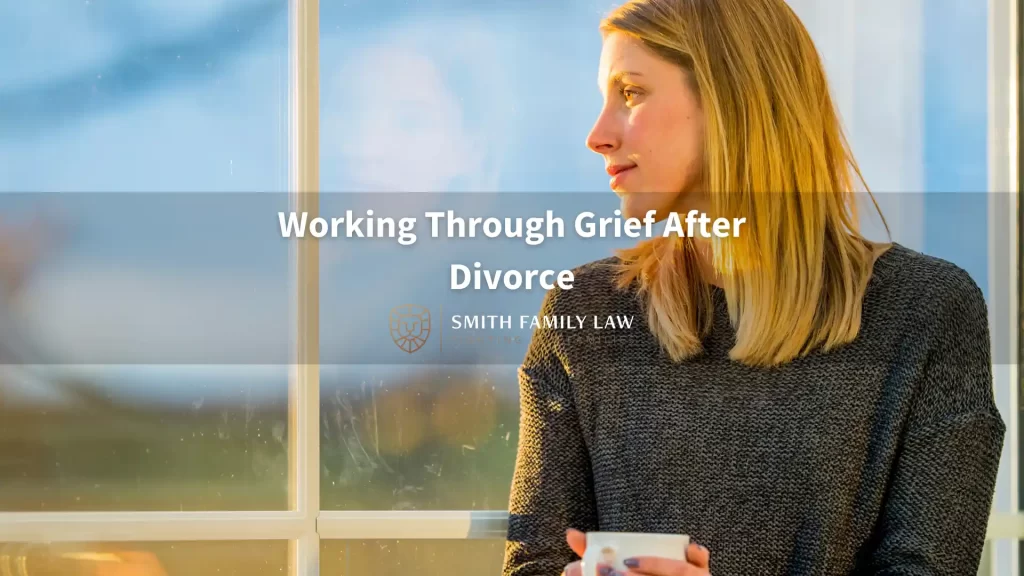Are you struggling with grief after divorce in Austin, Texas? Do you worry about experiencing grief once your divorce is finalized?
Your feelings are normal. That’s not to say you should ignore them. Although grief after divorce is natural, it doesn’t have to cause unbearable pain. Learning how to get through divorce and its aftermath can help you look to the future with optimism.
Stages of Grief After Divorce
Elisabeth Kübler-Ross introduced the idea of the five stages of grief in her 1969 book On Death and Dying. Per Kübler-Ross, the five stages of grief are:
- Denial
- Anger
- Bargaining
- Depression
- Acceptance
Kübler-Ross originally observed these stages in people facing their own imminent deaths. However, we now appreciate how people grieving losses may also experience them.
You may be going through these stages after a divorce. Recognizing what stage you’re in can help you better understand your grief. This process may also remind you that grief after divorce isn’t forever.
Unique Challenges Involving Grief After Divorce
Society acknowledges certain forms of grief as common and valid. For example, your support system might offer help when you grieve a loved one’s passing. However, death isn’t the only type of loss that can cause grief. A person may feel friends, family, and society in general aren’t as supportive when they experience those types of losses.
You may feel you’re alone when grieving the end of a relationship. It’s possible you’re experiencing disenfranchised grief.
Bereavement expert Kenneth Doka says you could experience disenfranchised grief in these circumstances. As he states, “disenfranchised grief refers to a loss that’s not openly acknowledged, socially mourned or publicly supported.”
How to Handle Disenfranchised Grief After a Texas Divorce
Doka and therapist David Defoe offer the following tips to those struggling with this form of grief:
- Remind yourself your feelings are valid, even if others aren’t consistently validating them.
- Determine the cause of your grief. Yes, you may be grieving because you’re coping with divorce. However, it might help to determine what specific aspects of the relationship you miss. It might be as simple as missing being in an intimate relationship with someone. Or you may still hold onto negative feelings from the relationship. Addressing the cause of grief can help you overcome it.
- Reach out to people. The fact that others aren’t recognizing your grief after divorce doesn’t mean they don’t care. Maybe people aren’t reaching out because they don’t know what to say. If you’ve put on a brave face, others might not even realize how much pain you’re in.
You may also perform a ritual that symbolizes the end of the relationship. Funerals and other such rituals provide for a sense of finality after a death. Society doesn’t have standard rituals for the end of a marriage. Come up with one that means something to you.
I Wanted the Divorce. Why Am I So Sad?
Perhaps you never expected to worry about how to move on after a divorce. You may have been the one to file for divorce in the first place. You might struggle with confusion if you’re experiencing grief after a divorce.
You may also think you can’t tell anyone about your feelings. Perhaps you fear they won’t understand why you feel this way when you previously claimed to want a divorce.
First, it’s important to understand that there may be valid chemical reasons for your feelings. According to Harvard Medical School, numerous studies show being in a loving relationship profoundly affects the brain’s reward centers. The end of a relationship may force your brain to rewire itself. In this way, the pain of divorce isn’t unlike the feelings of breaking an addiction.
Other reasons you may experience post-divorce pain despite wanting the divorce include:
- The relationship may have involved plenty of happy moments. Even if divorce was the best decision, you can still acknowledge you miss the enjoyable aspects of your marriage.
- Getting divorced can significantly affect your lifestyle. You’ve grown accustomed to living life as part of a team. Being in a marriage may have influenced your day-to-day routine and your long-term goals. Now that the marriage is over, you need to adjust to a new lifestyle. This is a disorienting experience for anyone.
- The process of divorce is sometimes painful. The rewards are worth the effort, but it’s understandable if you’re struggling in the aftermath of such an experience.
Never judge yourself in these circumstances. You can grieve the loss of a marriage even when you know ending the marriage is for the best.
How to Get Over a Divorce: Tips to Keep in Mind

- Join a support group – Research support groups for divorcees in your area. You may also join online support groups. Speaking with those who understand what you’re going through can help tremendously.
- Monitor your feelings – Consider keeping a journal or similar log in which you monitor your grief after divorce. Make a note when your grief or related feelings are particularly strong. Keeping track of your feelings can help you identify triggers.
- Focus on yourself – Try to remind yourself that being out of a relationship allows you to focus on yourself in ways you might not have before. Take this opportunity to explore your passions. Doing so may help you find new meaning in life.
Grief after divorce can last a long time. However, if you feel your grief is lasting too long or is affecting you too greatly, consider speaking with a mental health professional.
Contact an Austin, Texas Divorce Attorney
Grief after divorce is natural. One way to potentially minimize grief after divorce is to hire the right divorce attorney. If you receive empathetic support from your lawyer throughout the divorce process and you’re happy with the terms of your finalized divorce, you may be less likely to struggle with grief.
At Smith & Bledsoe Family Law, you’ll find an Austin, TX, divorce lawyer who offers compassionate service while aggressively advocating for your rights. Find out more about what our team of attorneys can do for you by contacting us online or calling (512) 277-3166 today for a free case review.
Related Reading:
